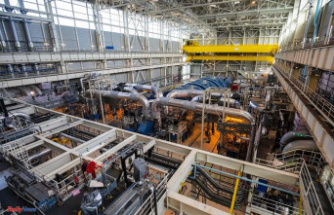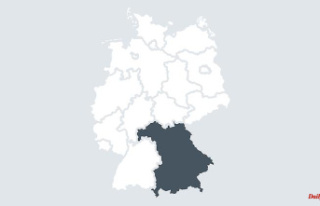According to the EU, California also wants to stop registering cars with internal combustion engines from 2035. Gasoline and diesel will gradually disappear from the streets. Other US states are likely to follow the decision.
California is getting serious about the fight against car emissions and will only allow new zero-emission cars from 2035. The head of the Californian environmental agency Carb, Liane Randolph, spoke of "ambitious but achievable goals" with which California is taking on a national and global pioneering role. Governor Gavin Newsom launched the 2020 greenhouse gas reduction reform. The top representatives of the environmental authority now spoke unanimously in favor of it.
Gasoline and diesel cars should gradually disappear from the streets. California suffers from poor air quality due to smog pollution in metropolises such as Los Angeles and forest fires. The largest US automaker General Motors supports the initiative. As early as 2021, he announced that his global model range would be completely emission-free by 2035.
California is the US state with the largest new car market in the country and is therefore of great importance for the auto industry. The rules there are also groundbreaking, with over a dozen other US states following them. During the tenure of former US President Donald Trump, there was a bitter dispute between the federal government in Washington and California over new emissions regulations.
Trump even denied the most populous US state a special right to enact stricter regulations than at the federal level. But his successor, Joe Biden, reversed this change. The auto industry was caught between the fronts in California's conflict with Trump. Although the manufacturers generally advocate more lax rules, what they want most of all are uniform standards. Having to adapt the models to regionally different rules would be cumbersome and expensive. Volkswagen, BMW, Ford and Honda signed an exhaust deal with California early on, drawing Trump's wrath.
There are plans similar to those in California in the EU: the environment ministers of the 27 EU countries agreed at the end of June that from 2035 only new cars without CO2 emissions would be registered. In addition, the EU environment ministers called on the European Commission to draw up a proposal on how vehicles with internal combustion engines powered by synthetic fuels (e-fuels) could also be registered after 2035. This applies to vehicles "outside the fleet limits". According to the current opinion, according to the EU Commission proposal, these are not cars and vans. However, under pressure from the FDP, Chancellor Olaf Scholz demanded that e-fuels also be approved for cars.












